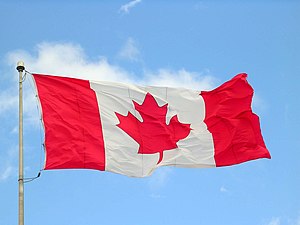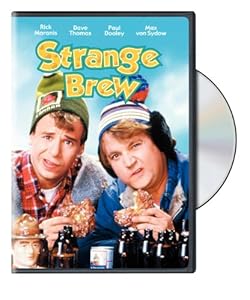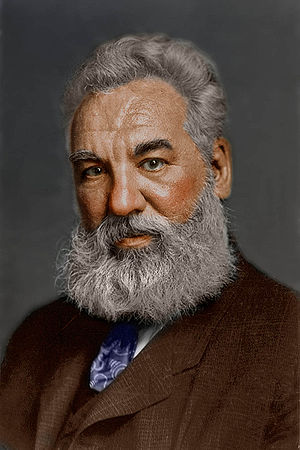 Image via Wikipedia
Image via WikipediaI've recently been thinking about that vast mass of frozen tundra that lays north of the U.S. border, sometimes called The Great White North, formally named Canada. The reason I have is because I've found myself interacting with several Canadians online as of late, and I've been impressed with their knowledge of American politics and culture. By contrast, I have to admit that I know practically nothing about Canada. I would go so far as to say that my woeful ignorance is embarrassing! I seem to remember from history lessons in my formative years about the French colonizing much of the Canadian territory during colonial times, that a war we gauche Americans refer to as The French and Indian War led to British control of the territory, and ...well...that's about it. Other than Canadian stereotypes - calling people hosers and drinking lots of beer – I had to admit my ignorance was quite profound. Therefore, I felt it prudent to scour the Googleverse for knowledge about Canada, you know, just in case I'm ever goaded into a discussion pertaining to our northern neighbors, in hopes that I won't sound like a complete idiot. So far, I have to admit...I'm a complete idiot.
 Cover of Strange Brew
Cover of Strange BrewDo you think Inuit Pies would have been as popular as Eskimo Pies? Doesn't quite have the same ring, but I digress.
Soon a slew of Canadian actors and musicians filled my brain, and I had to admit that I didn't know any Canadians other than entertainers. That's sad. So, after reading up on some Canadian history and politics (Canada is a Constitutional Monarchy?), I endeavored to find some Canadians famous for something other than their contributions to celluloid and vinyl (or, whatever material a CD is made out of). I have to admit, I was surprised by some of the people I found that hail from The Great White North. Although not a comprehensive list, I thought I'd mention a few that I found interesting.
 Image via Wikipedia
Image via WikipediaThough the inventor of the telephone was born in Edinburgh, Scotland, Mr. Bell spent most of his adult life in Canada. He would have the telephone patented in the U.S., but all the inventing took place at his home in Ontario. He became a naturalized citizen of the U.S., and Scotland and the U.K. claim him as a citizen as well, but it would appear Mr. Bell's heart was in Canada.
I found it interesting that he wouldn't allow a telephone in his study, as he found it distracting. I wonder if I told my daughter that, she might be motivated not to spend every waking hour talking on her cell? Probably not.
The Hollywood movie mogul and co-founder of Warner Bros. Studios was born in London, Ontario. Jack Warner was the main man at Warner Bros. Studios and is responsible for procuring the technology for the first “talkies”, or talking films.
By extension, one might blame him for the degradation of modern culture due to the immorality and depravity depicted in movies today. Not that I would! I'm just sayin'!
By extension, one might blame him for the degradation of modern culture due to the immorality and depravity depicted in movies today. Not that I would! I'm just sayin'!
 Image via Wikipedia
Image via WikipediaBorn in Toronto, Peter Jennings cut his journalistic teeth on Canadian television before becoming the news anchor for ABC's World News Tonight in the U.S. Of the “big three” news anchors, with Tom Brokaw at NBC and Dan Rather at CBS, Jennings was the anchor I watched. You see, before the time of a billion cable channels and around-the-clock news coverage as we have it today, a person typically got their news from one of the big three anchors on one of the big three networks. My, how times have changed.
I grew up with a basketball in my hands. It was the sport I loved to play the most, and if my parents didn't know where I was, it was a safe bet they would find me at the basketball court down the street. Well, until I was in high school, then there was a 50/50 chance. I guess I have James Naismith, the inventor of basketball, to thank for all those twisted ankles and failed slam dunk attempts of my youth. Thanks, man!
Mr. Naismith was born in Almonte,Ontario, but it was in Massachusetts where he'd invent basketball. He would later move to Kansas where he was athletic director and head couch of the basketball team at the University of Kansas.
I know, I know, he's an entertainer, but I didn't know he was Canadian until I did this research! I simply assumed someone that funny had to be American!
Leslie Nielson was born in Regina, Saskatchewan, a Canadian province I had to look for on a map in order to know where it is. I grew up with Airplane and The Naked Gun series, so imagine my surprise when I saw him in The Forbidden Planet. I didn't know the man that “would do anything for a laugh” made serious movies. He's one of my all time favorite funny men. I laugh just thinking about his work.
So, I guess Canada's number one export isn't actors and musicians after all. I don't know if you were surprised by the Canadians I've listed here, but I surely was, and pleasantly so. I think that we Americans can be a bit myopic when it comes to culture and country. We don't always see beyond our own proverbial noses at times, and miss out on a diverse panoply of interesting people, places and things that may lay just over the border. Perhaps the next time I chat with my Canadian friends I'll be a bit more appreciative and understanding. And maybe I won't sound like an idiot.
But, then again...






















